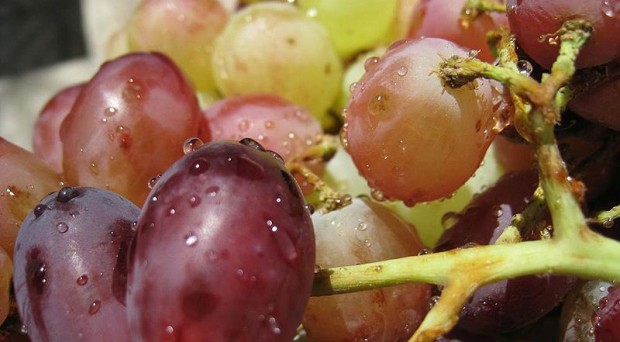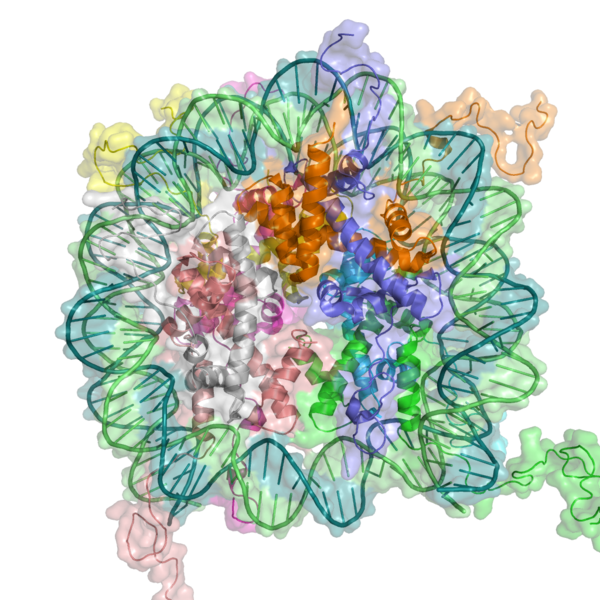
It is suggested that a “proper” diet is one of the most potent aging-delaying factors. A number of specific nutrients are known that directly or indirectly regulate the activity of enzymes catalyzing epigenetic modifications. Therefore, diets enriched in bioactive components, sometimes called “epigenetic diets”, might be utilized to delay aging and to modify its course.
Among such components are polyphenols, a heterogenous group of molecules containing phenolic rings, present in a relatively large quantities in plant foods. They have antioxidant, anti-inflammatory, anti-atherogenic and anti-cancerogenic properties, and diets enriched in polyphenols indeed lower the risk of aging-related health issues such as cardiovascular disease, cancers, diabetes, obesity, neurodegeneration and even osteoporosis.
Some of the mechanisms by which nutrients affect epigenetic modifications are already known. For example:
- Catechins and epicatechins (in high concentrations in cocoa, prunes and broad bread pods), quercetin (found in many fruits, vegetables, leaves and grains), fisetin (in strawberries, apples, onions and cucumbers), and other polyphenols, exert their function by inhibiting DNMT1-dependent methylation of DNA either through physical interaction with this enzyme or by decreasing the cellular content of S-adenosylmethionine
- Sulforaphane, found in cruciferous vegetables, such as broccoli, Brussels sprouts and cabbages, significantly inhibits expression of DNMT1 and DNMT3a and of histone deacethylases (HDACs). In addition to influencing methylation, epigallocatechin-3-gallate (a type of catechin) can also increase histone acetylation
- Resveratrol, a polyphenol present in the skin of red grapes and best known for its presence in red wine, can mimic the effects of calorie restriction diet on health status and rate of aging
So, the results of many studies indeed indicate that long-term consumption of bioactive components can affect numerous (commonly multiple) epigenetic modifications, health and aging (shown in 1, 2, 3 and 4). However, it is important to answer the question of whether benefits of consuming these and other nutrients are greater when we eat natural foods or consume dietary supplements containing quantities of selected polyphenols (or other bioactive components) that are much larger than these present in whole foods. We do not know the definite answer to this question.

On one hand, bioavailability of polyphenols in humans is quite low and use of supplements might “force” their increased absorption and, therefore, magnify their effects. In addition, it is much easier for an average person to take a pill once a day than to strictly adhere to the requirements of a diet.
On the other hand, whole plants contain multiple bioactive components (the majority of them still not well investigated or even not known) and the natural mix of them might be more beneficial than artificial compositions of selected nutrients, as it has been previously shown for A, C, and E vitamins.
To conclude, currently I would suggest to compose the diet using natural, low-processed foods and use supplements only when such a diet is not able to supply the organism with all necessary nutrients. This view may change if new data are published.
If you’d like to read more on this topic, you can read my previous “why do we age” blogs on epigenetics of aging and aging-associated DNA methylation changes.
Professor Monika Puzianowska-Kuznicka
Latest posts by Professor Monika Puzianowska-Kuznicka (see all)
- Why do we age (part 4): epigenetics and a calorie restriction diet - 9th March 2016
- Why do we age (part 3): epigenetic diet - 9th April 2015
- Why do we age (part 2): aging-associated DNA methylation changes - 18th February 2014
Comments